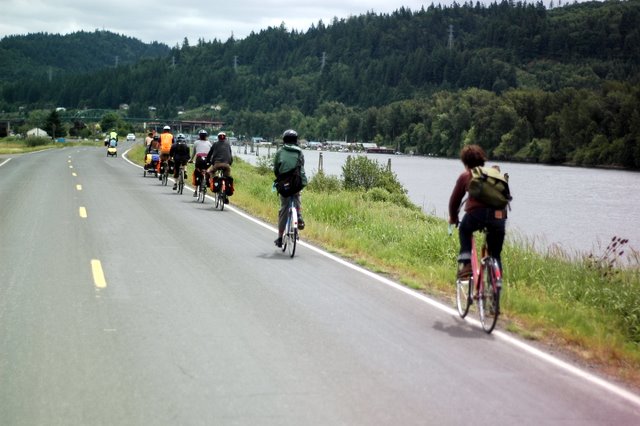
(Photo: J. Maus/BikePortland)
The Oregon Department of Fish and Wildlife can no longer keep up with the amount of people who drink and drive on Sauvie Island. ODFW says the problem has become so bad in recent years they want to ban alcohol on the island’s popular public beaches.

(Larger version here)
So far the proposal — which would impact Collins Beach, Walton Beach, and the beaches at Willow Bar Islands (see map) — has been met with jeers from people who see it as much ado about nothing and an example of government overreach. A poll on OregonLive.com last week showed 65 percent of respondents were against it.
This is a big issue for bicycle users because Sauvie is one of the most popular riding destinations in the region. Just 10 miles north of downtown Portland, its country roads and bucolic vistas tempt riders year-round. In warmer weather, the main parking lot is often full of people who drive to the island just to enjoy a nice bike ride. During the summer however, NW Reeder Road can get busy as people speed to the beaches on the northeastern edge of the island.
Sauvie Island resident Michael Rubenstein has been bicycling on the island since the 1970s. These days he’s a dedicated traffic safety advocate who sits on the Multnomah County Bicycle and Pedestrian Advisory Committee and works through the island’s neighborhood association to improve safety. In a recent phone interview he said banning alcohol on the beaches is, “One of the greatest proposals to improve road safety on Sauvie Island in the 40 years I’ve been biking out here.”
“I think the problem [of drunk driving] is very significant,” Rubenstein continued. “It’s gotten so bad that during the summer months my wife doesn’t let me ride on the roads after 12 noon.”
Advertisement
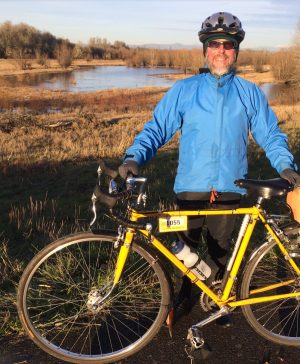
(Photo: Michael Rubenstein)
In a statement about the proposal, ODFW said that despite ramping up patrols and enforcement they’ve documented an increase in alcohol-related problems on Sauvie Island’s beaches. Last year 17 people were arrested for DUII as they left the beaches. ODFW says of all DUII arrests made by Oregon State Police in Columbia County, 36 percent were from people traveling away from the beaches. The amount of alcohol-related problems is partly a function of the huge numbers of people that visit Sauvie’s beaches. For the past five years, the number of visitors to the beach area from May through September is estimated to be 488,465 people. On a hot summer weekend, the number of people on the beaches can exceed 16,000 people a day. That’s more than first responders can handle.
ODFW’s proposal would prohibit the possession of beer and other alcoholic drinks from May 1st through September 30th. “This is when the number of people using wildlife area beaches is typically the highest and alcohol-related problems are most significant,” says Sauvie Island Wildlife Area manager Mark Nebeker.
Rubenstein feels an alcohol ban would have a big impact on safety. “We have a school on Reeder Road, there’s farm equipment, people walking dogs, people riding horses. And there are several blind curves on the road to the beaches. Any time someone’s perdeptions are altered by alcohol, they can’t respond fast enough on those blind s-curves.”
Despite the opposition we’ve seen in response to media coverage so far, Rubenstein thinks the locals will strongly support it. “I can’t imagine there’s a resident on the Island who would not approve of no drinking on the beaches.”
A public meeting to hear feedback about the proposal is scheduled for 7:00 to 9:00 pm on Wednesday February 28th at the Sauvie Island Grange Hall (note this meeting was rescheduled from February 22nd). The ban is also on the agenda of the March 16th meeting of the Oregon Fish and Wildlife Commission in Salem.
— Jonathan Maus: (503) 706-8804, @jonathan_maus on Twitter and jonathan@bikeportland.org
Never miss a story. Sign-up for the daily BP Headlines email.
BikePortland needs your support.




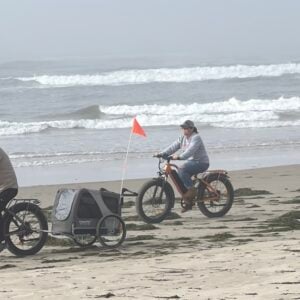
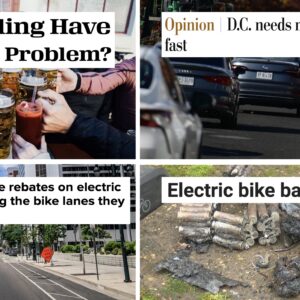
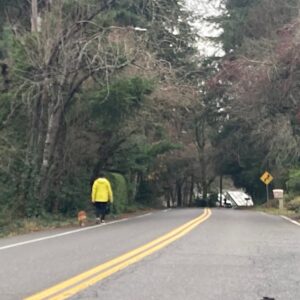
Thanks for reading.
BikePortland has served this community with independent community journalism since 2005. We rely on subscriptions from readers like you to survive. Your financial support is vital in keeping this valuable resource alive and well.
Please subscribe today to strengthen and expand our work.
When I bike at Sauvie, it’s in the morning, long before anyone who got drunk on the beach is on their way back home, and I imagine that’s true for many (most?) cyclists, so I am neutral on this from a bike safety perspective. However, from a traffic safety perspective, rampant drunk driving needs to be addressed, either via an alcohol ban or via traffic patrols — I would prefer traffic patrols to an outright ban but maybe the preferences of Sauvie Island residents should drive this one.
Banning alcohol is a ridiculous idea and upping police enforcement is overreaching and a waste of the public’s resources. Why not provide a free bus around the island instead, so people don’t have to drive? People are going to drink regardless of what the law says anyway, why not coax them into safer transportation options rather than strong arming their behavior using force?
The problem is that the bus is not free. You are asking someone to pay for a bus, so people can ride it to the beach and get drunk. Will bus riding be mandatory. Sounds like the bus is a bigger overreach than enforcing drunk driving laws.
The old, “people are going to do it anyway” argument. Why have laws?
I wish there was a seasonal foot ferry (bike ped) between Sauvie Island and Vancouver (Frenchmans Bar)…to avoid the crazy motorized traffic to reach the island.
How about a bridge to connect St. Johns, too?
I would strongly support any measures to make Sauvie Island roads safer, and this might do it.
If the ban is enforced, it might reduce overall volumes too, which would be good.
Why not just ban driving to the beaches on sauvie island? Get rid of all the parking at the beaches and run a shuttle.
For real let’s think about this issue in a wider context: drinking and driving on Sauvie’s is certainly a problem, but so is congestion, parking, road safety, and equitable access (since very little of the island is accessible from Portland by transit). We could begin to address all of these by restricting summer weekend parking at the beaches on Sauvie’s, and running a shuttle from either St. John’s or Downtown. This has a cost, but so will stepping up enforcement of an alcohol ban.
All of the close-in natural amenities to Portland are busy, and will only become busier in the future. ODOT has recognized this in the Gorge with their shuttle project, and so when we discuss access issues like this, we should be thinking about how we can provide disincentives to driving and make safer options more attractive, rather than policing people’s morality and creating new opportunities for people to come into contact with law enforcement.
Wow, what a reasoned, intelligent comment. Thank you.
That’s an excellent idea, but how would we get our pooch to the trailhead for the Warrior Point hike?
The ban seems unfortunate but probably necessary. I hope it does not replace enforcement, though. I think a lot of drunk driving originates at the farm-held events, too.
A seasonal water taxi running back and forth between Kelly Point Park, Belle Vue Point Park on Sauvie Island and Fenchman’s Bar would be an excellent idea, and could massively decrease the amount of driving to just park in a lot on the island for recreational cyclists, walkers and beach goers. Heck, even extend it down to Cathedral Park for easy city access.
Surprised in general at the numbers, that many people are buying the required ODFW passes to park at the beaches? Apart from the very serious drunk driving issues, I’ve noticed the last few years that large gatherings with coolers full of alcohol are increasing the rowdy factor, to where my wife and kids now only feel comfortable going out there for a weekday picnic. Would be very supportive of the ban.
The south-central coast had a similar problem where people were feeling more than a little intimidated by the crowds of rowdy drunks. The state eventually responded by banning dispersed camping and banning alcohol in the campgrounds. I’m sure the ban is routinely violated, but it does keep the mayhem down to a level where it’s no longer a regular news story. As an added bonus, there also appear fewer ATVs crashing into each other which has reduced the burden on the emergency response crews.
Perhaps this “ferry” / “water taxi” concept could be funded under a grant per transportation resiliency…the ferry(s) cold then be available in an emergency to be put in place when ______ bridge goes down.
I love the water taxi idea, Jason (& Todd). Back in the mid-90s there was a fellow (Captain Weimer) who advertised exactly this as an on-call service. He’d run you and your bikes over in his skiff. 4 of us met him at some dock near Ridgefield, and he landed us on the beach on Sauvies. Cost $20 for all of us – let’s just say the good Captain wasn’t making bank.
You mention Belle Vue park – does that really exist? I’ve seen it on maps but there does not appear to be any road access? Is it a boat-in only park?
I’ll admit to not having visited it personally Art. I do know it’s basically an undeveloped stand of trees and a few hundred feet of shore. There is a dock and boat ramp visible in aerial view on Google, but look like they could belong to neighboring private landowner. Likewise, there is a paved lane that connects NW Gillihan to the park, but not sure if marked private or not. If the county helps maintain that road access, then public usage would seem legal. For sure the park would likely need a seasonal floating dock, as well as some kind of through path to connect to the island roads.
I think that because of public nuisance to neighbors, and that it’s by far the closest public beach to town yet a very small parcel, this property has been purposely undeveloped and unpublicized. With an island wide alcohol ban and perhaps daylight hours access only, as well as serving only bicyclists and walkers with perhaps no car access/parking from the island side, the park could function as the dreamt of water taxi service without getting the neighbors too bothered.
Since the drunk driving is so common in the summer, wouldnt a sobiety check sting be worth the effort? Get the news crews to cover the sting, to get the word out. If they are not going to enforce drunk driving, then why would they enforce an alcohol ban which would be much more difficult and costly to enforce. It looks like to me like they are doing this so they can use it as an excuse to not enforce drunk driving.
I’m speculating here, but I assume OSP enforces the DUII with troopers. It’s burdensome to do (i.e. court proceeding). But ODFW can directly enforce the ban with rangers writing tickets. Much less intensive, probably greater available resources.
ODFW people are actually state troopers. A but unusual compared to most states, but it helps out in situations like this.
My understanding is that the oregon constitution prevents DUII checkpoints.
Bjorn is correct.
I’m not a huge fan of blanket searches (e.g. checkpoints) because the people being searched are overwhelmingly innocent.
Also, if such checkpoints are allowed, cyclists should logically be checked along with other road users who wait their turn in a single file line.
Oh No, this is going to ruin my idea for a new reality show, kind of a cross between Portlandia and Jersey Shore to be called Columbia Beach. In it a group of lumberjack garbed twenty-somethings would live on one of the Sauvie Island Beaches for the summer in a circle of those roof tents attached to overgrown Jeeps. They would drink, hook-up and misbehave, entertaining television viewers. Just as well I guess.
This is disappointing. I love to bring liquor and get wasted when I ride around the island.
You’re all good, the ban is only being discussed for the beaches, so carry on.
Lets bring modern technology to bear on this problem. Install a breathalizer triggered crossing gate on the outbound lane on the bridge. Driver would lean out car window and be tested by automated station.A failing test would initiate a loud buzzer alerting the occupants they have 60 sec to exit before a trap door drops the vehicle in to a crusher parked below feeding in to a scrap barge. No labor costs needed, and the scrap revenue would pay for the equipment.
Ban the booze on Sauvie’s. As a matter of fact, it seems like everytime I ride out there I smell weed blowing out from someone’s car. When I try to call Multnomah Co Police, all I get is an automated voicemail roundabout. So many a-hole drivers out there.
Just fantasizing – have a plainclothes with on the beach, watching drinkers load up and go to their cars, radio plate to trooper up the road.
What about at the clothing option portion of the beach? Hiding a police badge there might be tricky, and a bit painful too.
I often cycle with a beverage on group rides. Probably entitlement talking, but I’m comfortable endangering my life, not others. I wouldn’t do this in a car. In fact the whole notoon of bars in rural areas has always been a recipie for trouble to me. Drive car there, park, enjoy beverages, then what?
To be fair, the practice was established when horses did most of the driving. It was the innovation of the motor vehicle that really escalated the problem…
Any and every solution that requires state or municipal involvement WILL COST MONEY.
There is no way around that reality, whether it’s a shuttle bus, increased law enforcement or anything else.
Public safety initiatives cost money. If we’re not willing to pony up voluntarily — and as a rule, we’re generally not in this country because Americans are overwhelmingly uninterested in the idea of a social compact — then that means either a user fee on-site, or another unilaterally-instituted local tax (al la the Arts Tax), which still pisses a lot of Portlanders off.
Because the current political climate seems pretty unfriendly against bicycle riders on many levels, and the real change isn’t going to happen in the legislature right now, a solution may be to stage a new Critical Mass ride that completely takes over the main road every Sunday during the summer season to DEMAND road share for bicycle riders. Because we generally don’t get a lot of meaningful consideration without making demands of our car-centric culture.